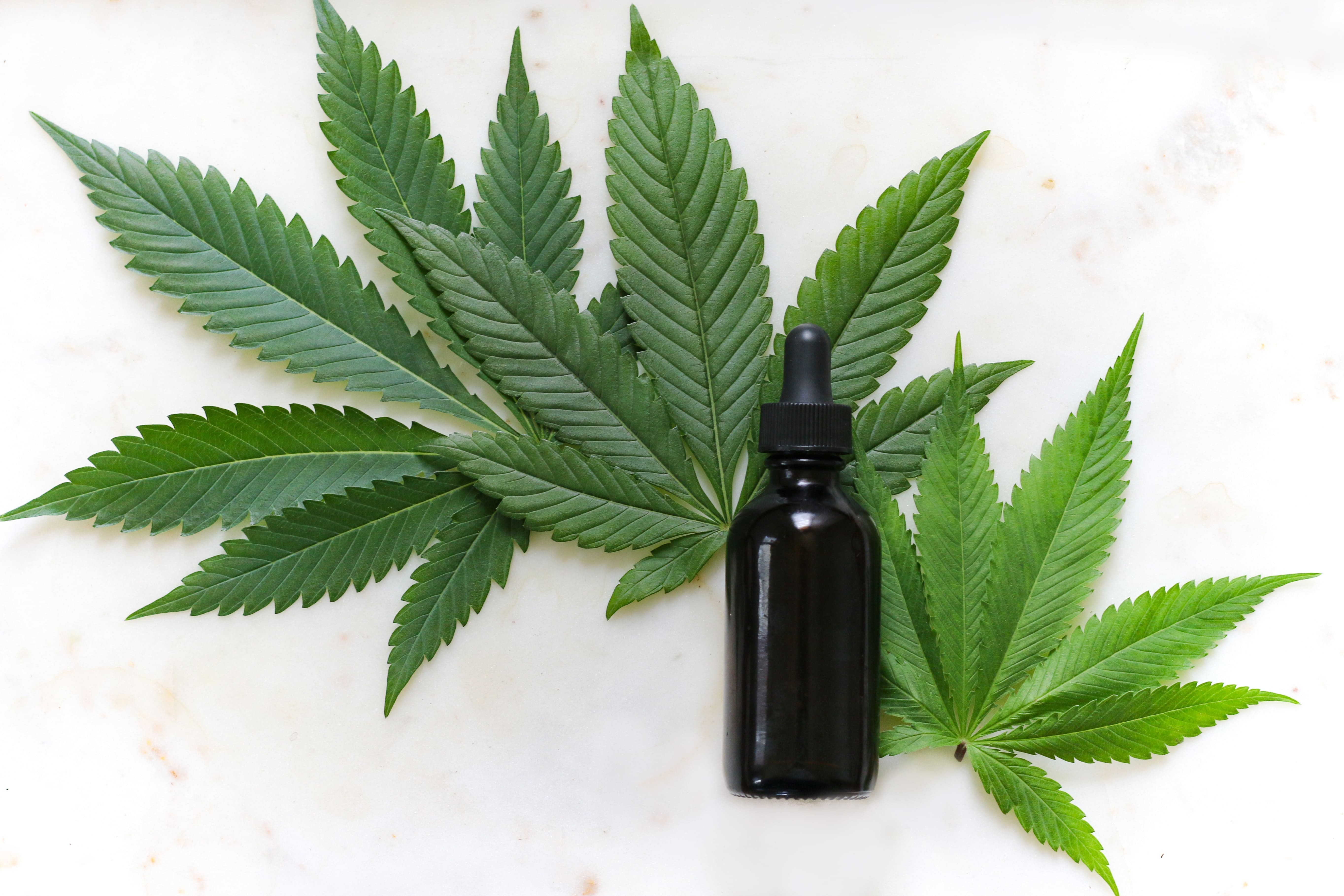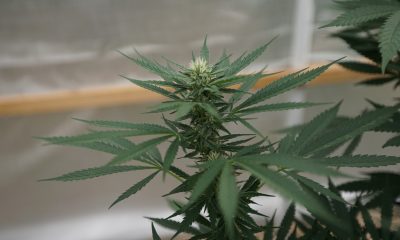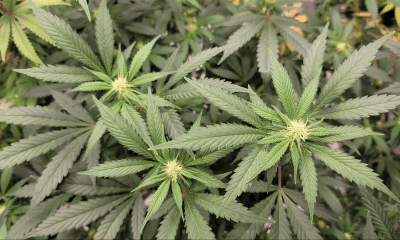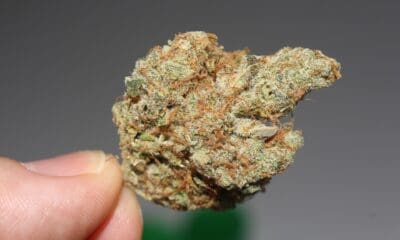Science & Health
Letting People Legally Buy CBD Significantly Reduces Opioid Prescription Rates, New Study Shows

A new report looking into how CBD access affects opioid prescriptions concludes that while legalizing CBD may not itself reduce opioid prescribing rates, the ability to actually access and purchase legal CBD products has led to 6.6 percent to 8.1 percent fewer opioid prescriptions.
“In general, we find that state level legalization of CBD products only leads to a statistically significant reduction in opioid prescriptions when states also allow for open and legal dispensaries,” the paper says, “suggesting that adequate supply-side access is necessary to realize the potential benefits of legalization.”
Further, the study found that legal and open dispensaries selling CBD products reduced opioid prescribing rates by nearly 3.5 percent two years after legalization, although strict limits on CBD purchases—for example through ID requirements or patient registries—blunted that impact.
The report, published last week in the Southern Economic Journal by economists at Wofford College in South Carolina and California State University Bakersfield, claims to provide the “first empirical evidence that: (i) state legalization of prescription CBD alone does not reduce opioid usage; (ii) regulations limited purchasing, such as ID laws, negate nearly all of the benefits of demand-side legalization; and (iii) supply-side access, either via interstate purchasing or legal and open dispensaries, are vital in using pain-management substances to fully combat the opioid epidemic.”
“We find that the ability to purchase CBD legally leads to 6.6% to 8.1% fewer opioid prescriptions.”
“Our paper provides important preliminary evidence that CBD may in fact reduce opioid prescription rates,” the study says, noting that most past research around cannabis and opioid use has focused on THC. “While CBD products may not necessarily be the cure-all they are marketed as, they do appear to be net substitutes for opioids.”
To draw their conclusions, researchers examined varying state laws around limited-access, CBD-only laws, “which allow for the prescribing of certain CBD products to patients based on certain identifiable medical conditions,” between 2010 and 2019. Such laws have been enacted in states such as Iowa, Tennessee and Texas that do not have comprehensive medical marijuana programs but instead allow patients to access low-THC, CBD-focused cannabis products.
As authors noted, it was a period of shifting market dynamics around CBD products.
“Although the fastest growing segment of the CBD market is over-the-counter (OTC) usage, the vast majority of states that have established industrial hemp programs did not do so until 2016, meaning that OTC CBD products were largely unavailable until later in our study period,” the authors wrote. Today, CBD products are widely available across the U.S. without a doctor’s prescription or recommendation.
Given the quickly changing legal landscape around CBD and other hemp-derived cannabinoids, the authors say their findings, which looked at county-level opioid prescription data from the Centers for Disease Control and Prevention (CDC) U.S. Prescribing Rate Maps, are limited—though still useful. “Though these results need not necessarily generalize to OTC products, particularly given the wide range of quality and current confusion regarding the largely unregulated market, it does suggest that further research on the impacts of CBD is warranted.”
While access through CBD dispensaries seemed to meaningfully reduce opioid prescriptions, that apparent benefit disappeared if strict rules governed access to CBD. “Additional regulations, in the form of patient registries or ID requirements, are estimated to nearly entirely negate the opioid-reducing benefits of creating supply-side CBD access in the form of dispensaries,” the report says.
Especially in the early days of state-level CBD legalization, prior to the 2018 federal Farm Bill more broadly legalizing hemp and its derivatives, “many patients found that they were unable to procure products with CBD,” the study says. “These initial difficulties incentivized some states to later modify their laws to allow products with CBD to be obtained from a wider range of sources.” In Tennessee, for example, a change in 2016 allowed patients to legally import CBD obtained from another state.
The report found that CBD-only legalization reduced opioid prescription rates, but not by as much as comprehensive medical marijuana laws (MMLs) or recreational marijuana laws (RMLs), although the data was somewhat noisy.
“Compared to states with no legal usage of marijuana, those who have adopted MMLs or RMLs prescribe fewer opioids per 100 population. However, these areas tend to be healthier and have more doctors, suggesting it is possible difference in opioid usage rates are not due to the presence of legal marijuana,” the study says.
But the addition of accessible CBD dispensaries, the study says, reduced opioid rates most of all:
“Importantly, we see that [states with] CBD laws have lower opioid prescribing rates than states with no laws, though still higher than in states with MMLs or RMLs. However, when we look at states that have allowed CBD dispensaries, we see that opioid prescribing rates are lower than those found in states with MMLs or RMLs, even with similar objective health measures (obesity and diabetes) to states with CBD laws.”
Broadly speaking, opioid prescription rates fell over the course of the study period—likely driven by the ongoing spike in opioid-related overdose deaths. States with medical marijuana laws saw 35 percent reductions in opioid prescribing rates between 2010 and 2018, for example, while states with no form of marijuana legalization also saw a 33 percent decrease.
Even in states with CBD dispensaries, researchers found that mandating ID checks or patient registries to purchase CBD “leads to no statistically significant change in opioid prescribing rates.”
“This again suggests that regulatory burdens hamper the potential benefits of CBD legalization in addressing the opioid crisis,” they wrote.
“While further work is needed to understand the degree to which our results are generalizable to the over-the-counter market for CBD,” the study concludes, “our results suggest policy makers should consider the costs of regulation and carefully balance the tradeoffs between ensuring the quality of and restricting access to CBD.”
The impact of cannabis reform on opioid use and prescription rates has been a topic of inquiry and debate since the earliest state cannabis laws. While findings have been mixed, generally research has indicated that expanding access to cannabis has led to declines in opioid use.
Among more recent studies, one published this summer linked medical marijuana use to lower pain levels and reduced dependence on opioids and other prescription medications. Another, published by the American Medical Association (AMA) in February, found that chronic pain patients who received medical marijuana for longer than a month saw significant reductions in prescribed opioids.
AMA also released research showing that about one in three chronic pain patients report using cannabis as a treatment option, and most of that group has used cannabis as a substitute for other pain medications, including opioids.
State-level marijuana legalization is associated with major reductions in prescribing of the opioid codeine specifically, too, according to a study that leveraged data from the federal Drug Enforcement Administration (DEA).
A study that was released last year similarly found that giving people legal access to medical cannabis can help patients reduce their use of opioid painkillers, or cease use altogether, without compromising quality of life.
There’s also no deficit of anecdotal reports, data-based studies and observational analyses that have signaled that some people use cannabis as an alternative to traditional pharmaceutical drugs like opioid-based painkillers and sleep medications.
In August, a federally funded study found that marijuana was significantly associated with reduced opioid cravings for people using them without a prescription, suggesting that expanding access to legal cannabis could provide more people with a safer substitute.
Photo courtesy of Kimzy Nanney.














